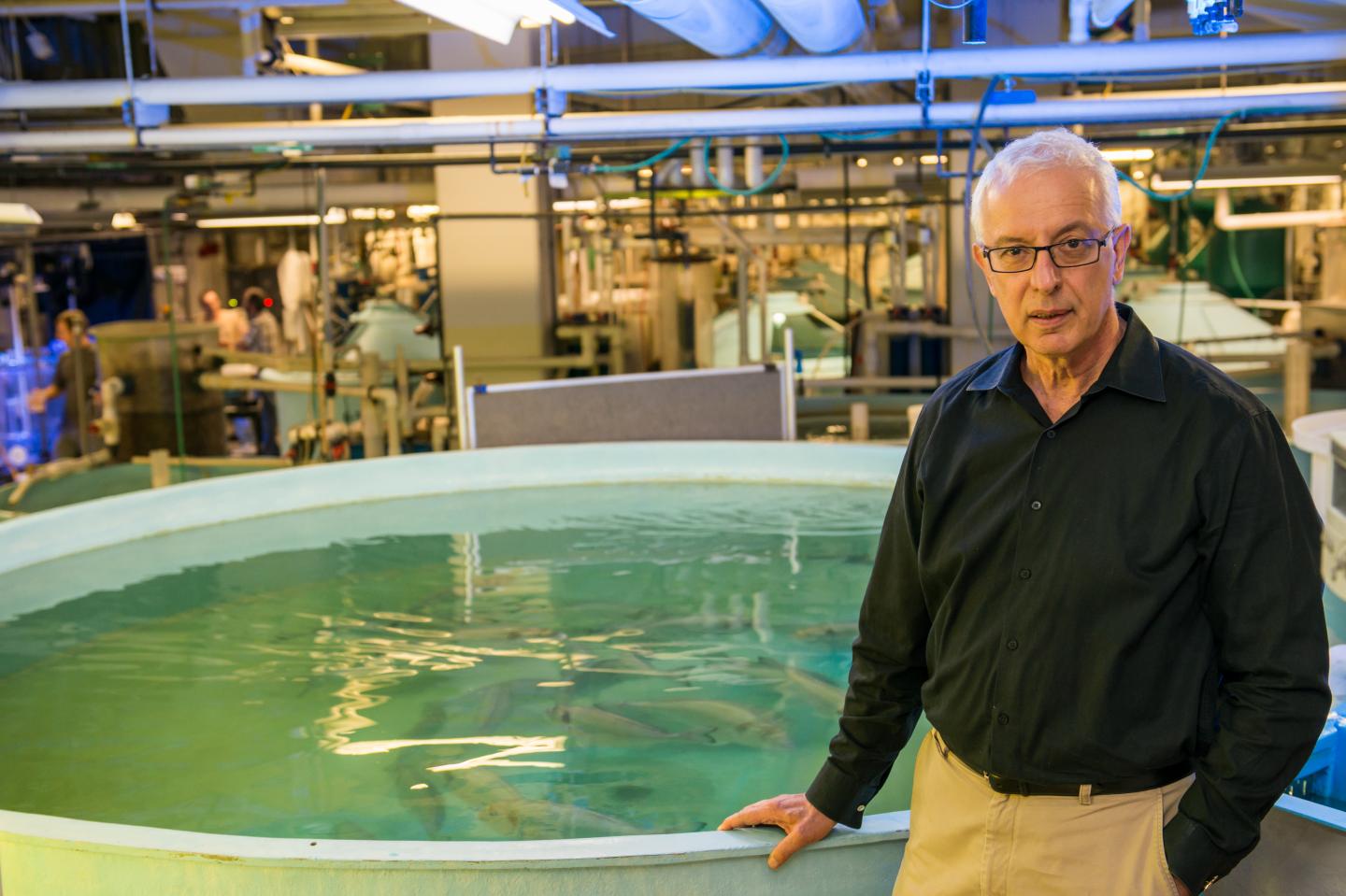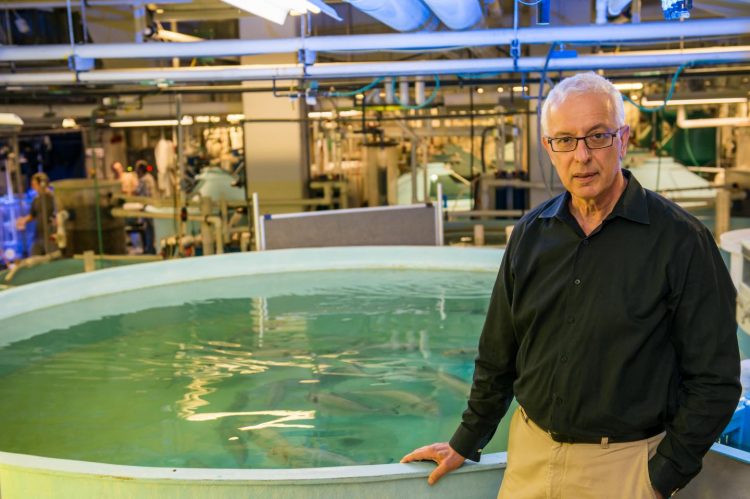Sustainable, locally-sourced seafood could be available in land-locked locales in the near future

Credit: Marlayna Demond for UMBC
Maryland Sea Grant and University of Maryland, Baltimore County, are lead partners in a multi-state consortium to receive a $1.2 million grant to study how to optimally grow Atlantic salmon (Salmo salar) in land-based aquaculture systems.
The competitive grant comes from the National Sea Grant Office, part of the National Oceanic and Atmospheric Administration. It is part of a major agency effort to increase domestic aquaculture production and reduce the trade deficit associated with salmon imports. According to the agency, about 90 percent of all seafood consumed in the United States is imported. Only about half of that comes from aquaculture, which puts pressure on wild stocks. Those imports add to a growing seafood trade deficit, already at $16 billion in 2017.
The funding will establish a coordinated network of recirculating, land-based aquaculture systems raising Atlantic salmon. That effort allows for fish production in more affordable areas closer to population centers, which will lower the cost of production as well as the carbon footprint for transport. These systems recycle water and treat the waste with beneficial microbes, increasing sustainability.
Americans consume 500,000 tons of Atlantic salmon annually, 95 percent of which is imported, and valued at $3.4 billion, according to Yonathan Zohar, the chair of the UMBC Department of Marine Biotechnology and the grant’s lead principal investigator. Zohar, based at Baltimore’s Institute of Marine and Environmental Technology, oversees one of the nation’s most sophisticated aquaculture research operations. The new grant, he said, “offers an opportunity for domestic production of Atlantic salmon to replace all of these imports. The only way to really scale that up is with land-based systems that are environmentally sustainable. This allows us to identify the bottlenecks, address the issues and develop a strategic plan to make sure this emerging Atlantic salmon aquaculture industry can be successful.”
Maryland Sea Grant director Fredrika Moser said she saw tremendous value in a multi-disciplinary approach to growing domestic aquaculture through this grant. “Sea Grant is excited to work with our partners in research and industry to develop a roadmap that will help policymakers and federal agencies promote an economically feasible and environmentally sustainable land-based domestic aquaculture industry,” she said.
This effort to build these systems’ capacity and research their economic feasibility includes Sea Grant partners in Maine and Wisconsin as well as the University of Maryland Center for Environmental Science, University of Maryland Extension, Morgan State University, the USDA National Cold Water Marine Aquaculture Center, the University of Wisconsin-Stevens Point Northern Aquaculture Demonstration Facility, and the Conservation Fund’s Freshwater Institute in West Virginia. Industry partners and collaborators include Superior Fresh in Wisconsin, Whole Oceans, LLC and Nordic Aquafarms in Maine, and American Salmon in Maryland, among others.
“This research is critical in terms of promoting industry development in the United States. It’s still a very young industry here. There’s a tremendous development potential as we see it,” said Nordic Aquafarms president Erik Heim. “There’s a learning curve in this industry. This kind of research can disseminate knowledge and lower the entry barriers for new players as well as help established players grow.”
Whole Oceans’ Jennifer Fortier added: “We want to develop training programs that can help us recruit local workers and retrain skilled laborers from other industries. We look forward to collaborating with the other top-notch partners and learning from each other as we work to expand this industry.”
Wisconsin and Maine Sea Grant directors echoed the excitement for the project. “We’re excited to partner with Maryland and Wisconsin Sea Grant and experts in the technology to gather as much science-based information about these systems as they develop and evolve,” said Maine Sea Grant director Gayle Zydlewski.
“The sustainable production of Atlantic salmon in the heart of America’s Dairyland has been successful thanks to Superior Fresh,” added Wisconsin Sea Grant Director James Hurley. “This new research will further a healthy source of protein to wider markets.”
###
Media Contact
Rona Kobell
[email protected]
Original Source
https:/




